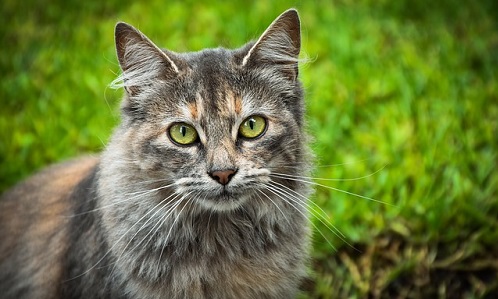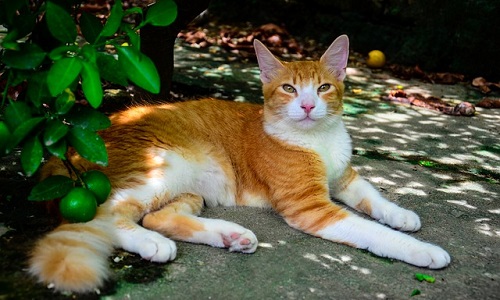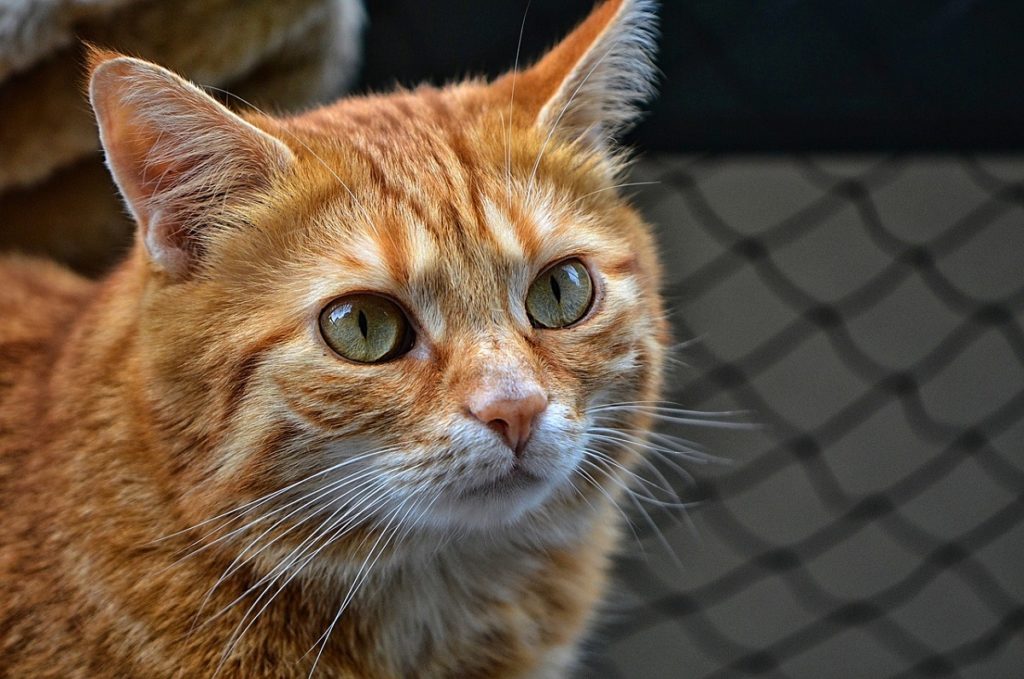When we hear about allergies, we mostly think of them in terms of human afflictions, from hay fever and pollen to peanuts and animal dander. It’s why many are surprised to find out their pets, the lovely creatures that can stir up sniffles themselves can also have allergies.
One cat allergy can be to litter. This blog will provide more information on:
- Signs you have a cat allergic to litter
- Why cats can have or develop allergies
- How to best diagnose if your cat does have these allergies
- The best treatments for cat litter allergies
Once you are aware of the signs and symptoms of allergies in cats, you can make sure your fierce feline friend feels their most healthy and comfortable.
Signs You Have a Cat Allergic to Cat Litter
The first step is to clearly diagnose if your cat does indeed have litter allergies. There are a variety of signs you can look out for that will help diagnose the issue. You may notice your feline:
- Having watery or irritated eyes
- Doing a lot of scratching, indicating their skin is itchy
- Has a cat skin rash
- Swelling up, particularly in the facial area
- Trying to avoid going to his litter box
- Coughing or sneezing a high amount
If you see any of these symptoms, the most important step is to go to your trusted veterinary professional and get their opinion and insight. Each cat and situation is different, so it is important to get the most accurate diagnosis. Remember, there are a variety of reasons a cat may be scratching themselves. (For example, did you know – cats can get lice?)
It is important to note that despite the source of the issue, the most common problem that cats will experience is some sort of issue with their skin, like cat dandruff.
But…Why Would My Cat Be Allergic to Litter?
 Litter often sets off a type of allergy known as an airborne allergen. What often makes cats allergic is the dust that rises up from litter boxes themselves. This is more likely to happen with litter that’s scented. As pollen gets in our eyes and can activate allergies in humans, dust from cat litter can create a similar reaction of watering eyes and breathing troubles in cats. The dust from most cat litters is silica dust, which is found in many clay-based litters. If you are currently using a clay-based litter, a change from this may be highly impactful on your cat’s comfort and health.
Litter often sets off a type of allergy known as an airborne allergen. What often makes cats allergic is the dust that rises up from litter boxes themselves. This is more likely to happen with litter that’s scented. As pollen gets in our eyes and can activate allergies in humans, dust from cat litter can create a similar reaction of watering eyes and breathing troubles in cats. The dust from most cat litters is silica dust, which is found in many clay-based litters. If you are currently using a clay-based litter, a change from this may be highly impactful on your cat’s comfort and health.
What Cats are Most Susceptible to Litter Allergies?
Litter allergies may be more common than you think. It does tend to happen more in young cats (well, kittens!) or older felines, although it is possible at any age.
Think Your Cat May Be Allergic to Litter? Do This.
If your cat is showing any of these signs, particularly if he is currently using clay-based litter, take him to the vet to get consulting from your trusted professional.
Treatments and Preventive Measures for Cat with Litter Allergies
After a diagnosis has been confirmed by your trusted professional, there are multiple treatments and ways you can help your cat from experiencing future discomfort from the litter.
The #1 way to get your cat feeling most comfortable ASAP is to take the root of the allergen away out of the home – or his living space. Take the litter out of the home!
A great way to start is by swapping the litter for a new brand, preferably one that is specifically aimed at being dust-free. If they currently have a clay-based litter, try using a different kind. If it continues or the allergies have already created severe symptoms, your veterinary professional may also prescribe a medicine to help, such as cortisone or an allergy injection.
But, let’s get back to the root of it all – the cat litter and its alternatives.
What Are Alternatives to Traditional Cat Litter?
 As the best way to reduce a litter allergy is to remove the litter itself, the next question is what type of litter to get. This can feel tricky, especially if you’re used to always getting one type of litter. There are a variety of others on the market, whether at the store or online, as well as more organic options such as corn (dried!), sand, newspaper shredded up and husks of wheat.
As the best way to reduce a litter allergy is to remove the litter itself, the next question is what type of litter to get. This can feel tricky, especially if you’re used to always getting one type of litter. There are a variety of others on the market, whether at the store or online, as well as more organic options such as corn (dried!), sand, newspaper shredded up and husks of wheat.
When at the Vet, Consider Asking This
If you suspect your cat has allergies and take them to a trusted medical professional, why not check in on other grooming and general health? Like allergies, another highly overlooked aspect to cats is their teeth. Many cats may need oral hygiene help because, not only does it improve any cat bad breath, it promotes healthy teeth and gums that can deteriorate as they age.
Next time you take your cat to the vet, make sure to ask all the necessary questions and concerns you may be having. After all, as a pet owner, the most important thing you can do for your cat is to keep them healthy and happy throughout their lifetime. You may also want to consider CBD for cats as part of their wellness routine, especially in their older years! Check out our Cat CBD products!
Citations:
“Litter Allergy in Cats – Symptoms, Causes, Diagnosis, Treatment, Recovery, Management, Cost.” Wag!, 24 Mar. 2017, Accessed 9 Dec 2018. www.wagwalking.com/cat/condition/litter-allergy.
“Allergies in Cats: How To Tell | Learn More on Litter-Robot Blog.” Litter-Robot Blog, 24 July 2018, Accessed 9 Dec 2018. www.litter-robot.com/blog/2016/08/22/allergies-in-cats/.
“Best Cat Litter for Allergy Sufferers.” World’s Best Cat Litter Blog | Clearing the Air, 5 Jan. 2017, Accessed 9 Dec 2018. www.worldsbestcatlitter.com/clearing-the-air/2013/10/a-natural-litter-for-cats-and-humans-with-allergies/.
“What Is Bothering Your Cat? It Could Be Feline Allergies.” Pet Health Network, Accessed 9 Dec 2018. www.pethealthnetwork.com/cat-health/cat-diseases-conditions-a-z/what-bothering-your-cat-it-could-be-feline-allergies.




